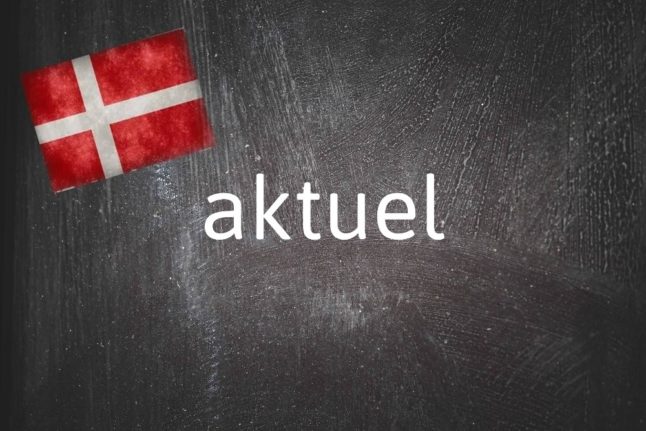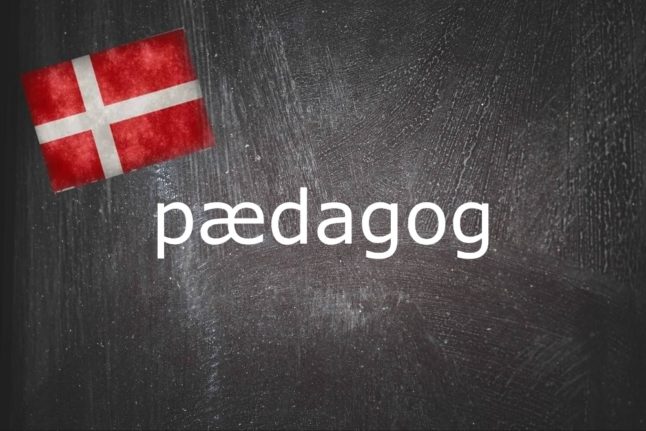What is aktuel?
Aktuel does not mean “actual” as you might expect on first glance. It is an adjective to describe something “of interest or relevance at a given point in time”, according to the Danish dictionary definition.
This puts it in the category of false friends – words that look like an English word but have a different meaning to their counterpart – in a similar way to other -el words in Danish, like spektakel and eventuel.
Spektakel is an adjective for something noisy and disruptive (not necessarily spectacular), while eventuel means a possible or potential outcome or decision — and not “eventually”.
What these three ‘false friends’ (from an Anglophone perspective) have in common, however, is their roots in French or Latin. In the case of aktuel, it can be traced to actuel in French and actualis in Latin, meaning something close to “in action”. ‘Actual’ also comes from actualis, but in English the meaning has shifted.
Danish false friends like these might be confusing to an English speaker because their meanings are not the same as English words that look like them, but a French speaker will find them more straightforward to understand.
Why do I need to know aktuel?
Det er ikke aktuelt is a phrase much-loved by politicians.
“Are you going to give workers six months a year off and lower the retirement age to 50?” a journalist might ask a campaigning politician in the run-up to a big election.
Instead of saying “no, of course not, don’t be ridiculous”, they would probably just say det er ikke aktuelt , which essentially translates to something like “it’s not on the agenda”, or “there are currently no plans to do so”, and move on.
Another place you’re likely to see it is in interviews. If, for example, a famous Danish musician was being interviewed, you might see something like hun er aktuel med en ny plade som udkommer i februar, which roughly translates as “she is current/topical with a new album, which will be released in February”. In this case, it’s essentially used to explain why the subject of the interview is relevant.
You can also use aktuel to talk about something being timely, with the negative form of the word being uaktuel, or outdated. One example could be a journalist asking their editor if they should cover a particular news story. If they were told nej, det er uaktuelt, that would essentially mean it’s no longer interesting or current. Conversely, something højaktuelt is highly relevant and certainly worthy of a closer look.
There are also noun and verb forms of aktuel. For example, if you had some uaktuel (outdated) data, you could use the verb aktualisere to describe the process of bringing it up to date, after which you could discuss its aktualitet (up-to-dateness).



 Please whitelist us to continue reading.
Please whitelist us to continue reading.
Member comments